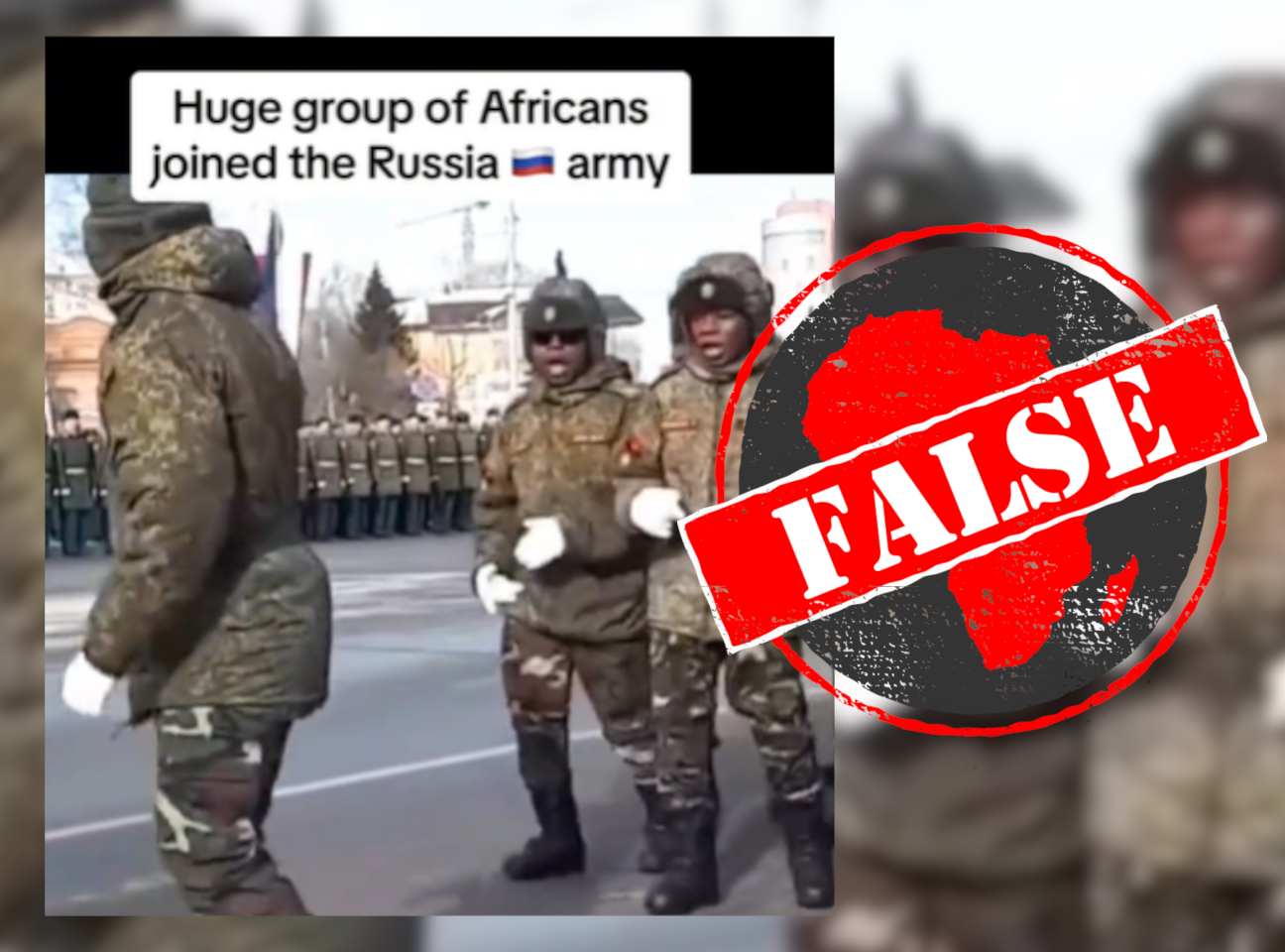IN SHORT: Several social media users claim that a group of Ghanaians have joined the Russian army. But the video used as evidence shows members of the Angolan army, not Ghanaians, taking part in a parade in the Russian city of Omsk.
“Huge group of Africans joined the Russian army,” reads text on a video circulating on social media since April 2024.
The video shows a small group of men, most of them black, dressed in winter camouflage, marching on a snowy parade ground and chanting a song in what sounds like an African language. Other troops and the Russian flag can also be seen in the background.
It also shows the face of the narrator. “Ghanaians are joining the Russian army! Can you imagine?” he exclaims.
Ghana is a country in West Africa.
“Because the Russian army is the most powerful military on the face of the Earth,” the narrator adds. “These are Ghanaians. This is so amazing. Are you African and want to join the Russian army? President Putin has proven to be the strongest president on Earth.”
The video includes a photo of Russian president Vladimir Putin sipping what appears to be champagne.
Russia’s full-scale invasion of neighbouring Ukraine in February 2022 divided the world, including countries in Africa. There are reports that Russia has recruited men from Africa, India and Nepal to fight in the war.
The claim can also be seen here, here and here.
But does the video show Ghanaians joining the Russian army? We checked.

Angolan soldiers studying in Russia
The lead soldier is carrying a red and black flag with a yellow emblem. This is the flag of Angola, a country in southern Africa. The insignia on the soldiers’ uniforms also show the Angolan flag.
Africa Check took screenshots from the video and ran them through a reverse image search.
This led us to a report in the “offbeat” section of the Irish Times with the headline: “Angolan soldiers sing and dance in Siberian military parade.” It’s dated 27 February 2018.
The report includes a similar video of the same soldiers marching on the same parade ground, but shot from a different angle.
Its caption reads: “Angolan cadets studying at a military school in Omsk in Russia's Siberia, joined Russian troops on February 23rd in the annual Defenders of the Fatherland parade which commemorates Russian and Soviet troops, in minus 14 degrees Celsius weather.”
According to other reports and videos from February 2018 – here, here, here and here – the soldiers were members of the Angolan army studying at the Omsk Automotive and Armoured Engineering Institute, a military school in the southern Russian city of Omsk.
They were taking part in the school’s annual Defender of the Fatherland Day parade in Omsk’s Cathedral Square. According to reports, the soldiers won the audience award for their performance.
The soldiers are from Angola, not Ghana. They did not join the Russian army; they were studying in the country. And the video is more than six years old.
Republish our content for free
For publishers: what to do if your post is rated false
A fact-checker has rated your Facebook or Instagram post as “false”, “altered”, “partly false” or “missing context”. This could have serious consequences. What do you do?
Click on our guide for the steps you should follow.
Publishers guideAfrica Check teams up with Facebook
Africa Check is a partner in Meta's third-party fact-checking programme to help stop the spread of false information on social media.
The content we rate as “false” will be downgraded on Facebook and Instagram. This means fewer people will see it.
You can also help identify false information on Facebook. This guide explains how.


Add new comment